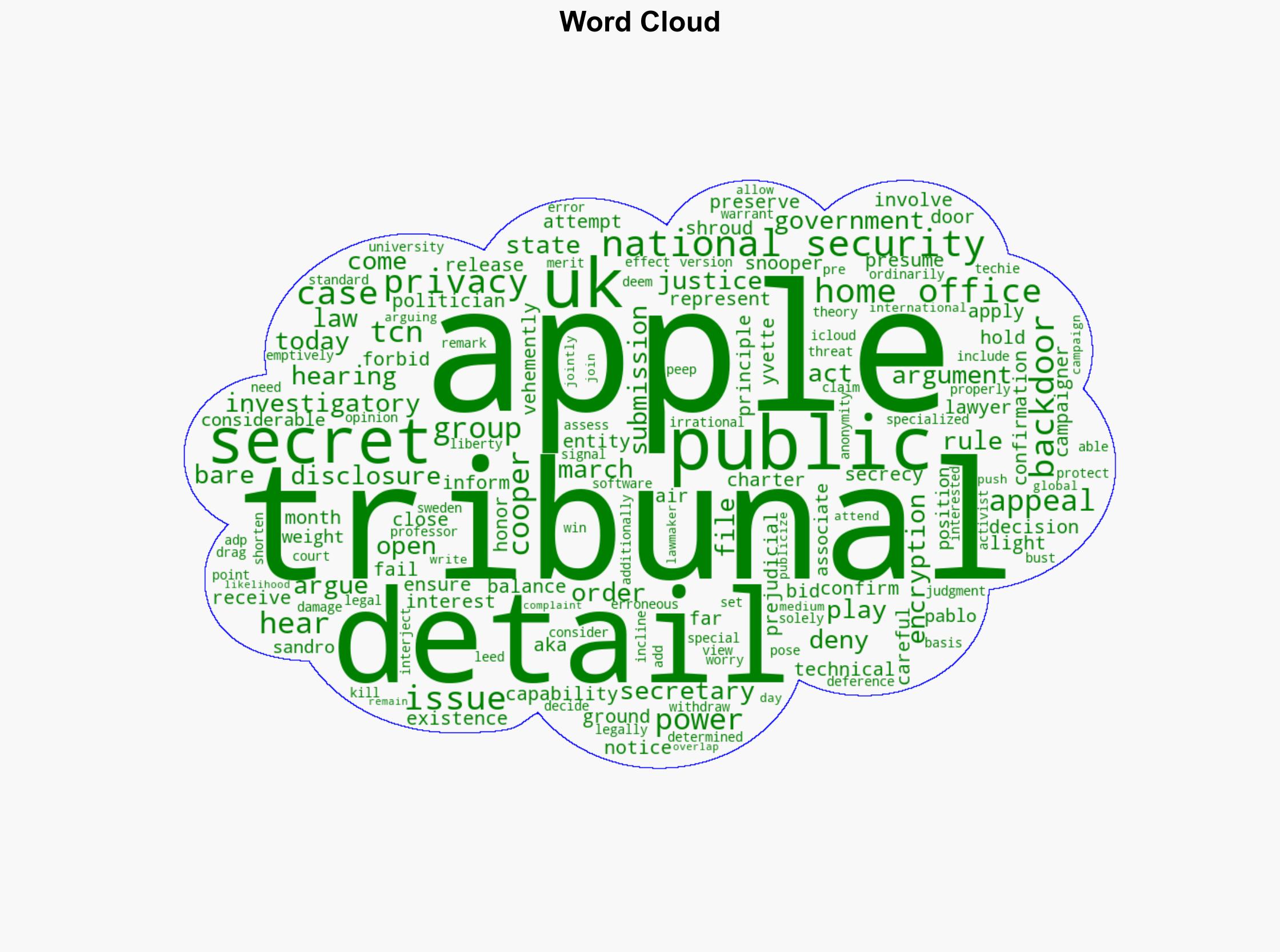Tribunal denies UK’s attempt to keep details of Apple ‘backdoor’ case secret – Theregister.com
Published on: 2025-04-07
Intelligence Report: Tribunal denies UK’s attempt to keep details of Apple ‘backdoor’ case secret – Theregister.com
1. BLUF (Bottom Line Up Front)
The UK Tribunal has denied efforts to keep details of a case involving Apple and a ‘backdoor’ order secret. This decision highlights the tension between national security interests and the principles of open justice. The Tribunal’s ruling mandates transparency, potentially impacting future cases involving technical capability notices (TCNs) under the UK’s Investigatory Powers Act. Stakeholders should prepare for increased scrutiny and potential policy adjustments.
2. Detailed Analysis
The following structured analytic techniques have been applied for this analysis:
General Analysis
The Tribunal’s decision to publicize details of the Apple case underscores a critical legal precedent in balancing national security with public transparency. The case revolves around the UK’s demand for a backdoor in Apple’s encryption, which Apple contested. The Tribunal’s ruling against the Home Office’s secrecy claims suggests a shift towards greater accountability in the application of TCNs. This decision may influence future legal challenges and legislative reviews concerning digital privacy and security measures.
3. Implications and Strategic Risks
The Tribunal’s decision could lead to increased public and political scrutiny of the UK’s surveillance practices, potentially affecting regional stability and international relations. The ruling may embolden privacy advocates and tech companies to challenge similar government orders, impacting national security strategies. Additionally, the decision could influence global tech policy, particularly in jurisdictions with similar legal frameworks.
4. Recommendations and Outlook
Recommendations:
- Enhance transparency in the issuance and handling of TCNs to build public trust and mitigate legal challenges.
- Consider revising the Investigatory Powers Act to address privacy concerns while maintaining national security capabilities.
- Engage with technology companies to develop mutually agreeable solutions that balance security and privacy.
Outlook:
In the best-case scenario, increased transparency leads to improved public trust and collaboration between government and tech companies. In the worst-case scenario, continued legal challenges and public dissent could undermine national security efforts. The most likely outcome is a gradual policy adjustment that seeks to balance privacy and security interests, with ongoing dialogue between stakeholders.
5. Key Individuals and Entities
The report mentions significant individuals and organizations, including Yvette Cooper, Pablo Sandro, Apple, and the Home Office. These entities play pivotal roles in the ongoing discourse surrounding digital privacy and national security.




